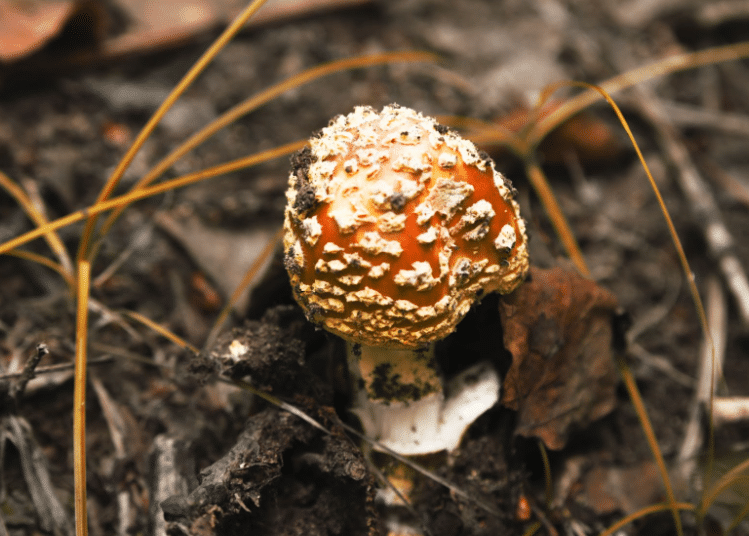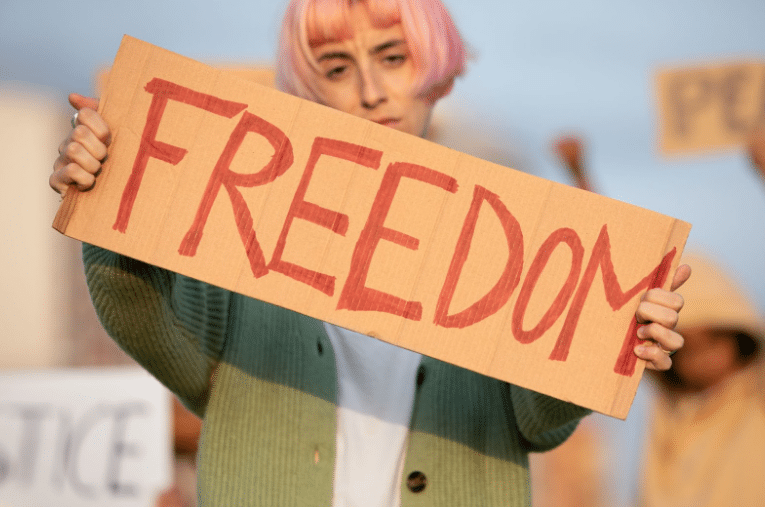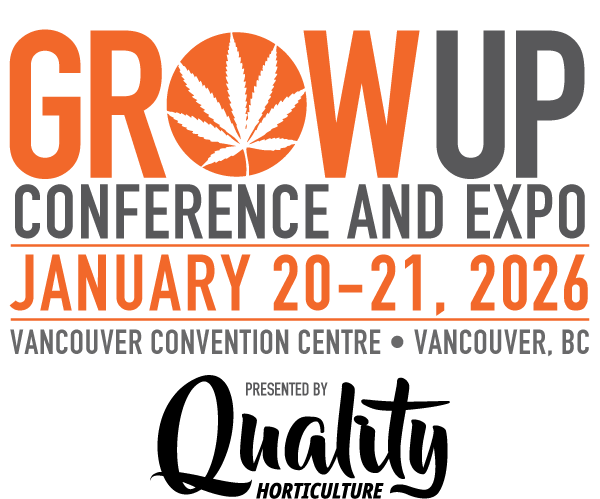No two mushrooms are quite the same — some have a bit more magic to them than others. The secret to magic mushrooms is often in psilocybin. That’s not the only option, though. All the magic mushrooms get their supernatural powers from different psychoactive compounds like psilocybin, psilocin, ibotenic acid, and muscimol. Some give you more space to get in touch with yourself via deep emotional exploration, while others offer relaxation and sedation.
What Is The Difference Between Magic Mushrooms and Regular Ones?
There are no such substances in the regular mushrooms, simple as that. Sadly, that means no euphoria or divine revelations, but they at least go well with pasta. You won’t feel all these heightened emotions — even though some pasta lovers might disagree — no matter the amount you take.
Magic mushrooms, too, can become a part of your favourite dish. Many use powdered shrooms, mixing them into food and drinks. Not going to lie, spicing up your evening cup of tea this way does sound alluring. Such culinary experiments provide the gourmands with mind-blowing creativity, euphoria, and emotional clarity.
Shroom Types
Based on popularity alone, psilocybin mushrooms are the royalty amongst other magic mushrooms, and rightfully so. Their mind-altering and therapeutic effects have been praised for centuries, and these are becoming even more sought-after in recent years.
What might be confusing at first is that there are more than 100 psilocybin mushroom species cultivated all over the world. Though the most in-demand types are Psilocybe cubensis and Psilocybe semilanceata, there is quite a variety to choose from.
From Psilocybe azurescens, more well-known as Flying Saucers, to Psilocybe cyanescens, nicknamed Wavy Caps, each of them delivers a slightly different effect. Not to mention ibotenic acid and muscimol mushrooms, which are a whole different story compared to the psilocybin classics.
Short-term and Long-term Psilocybin Mushrooms Effects
Thanks to the governmental programs, life experience and relative’s stories, negative connotations appeared around magic mushrooms and other drugs (even cannabis before 2018). Your first thought when you hear about psilocybin shrooms is probably about hippies, tripping, connecting to nature or Black Noir’s (fictional character from The Boys series) vivid hallucinations. And that’s not so far from the truth.
Magic mushrooms have a whole pack of positive and negative effects. They are also often compared to MDMA and LSD, but unlike them, they are natural, such as ayahuasca, and that’s why they are preferable. The shrooms’ effects onset within 30-45 minutes. Though they can last from 3-6 hours, the first few hours are when the sensations are at their highest.
Short-Term Magic Mushrooms Effects
People got used to dividing things in black and white. But science marches up ahead and studies also mental and physical shroom effects. Here’s a breakdown of what you can possibly feel from magic mushrooms. Quick note: this isn’t a checklist. Everything is individual, so the effects depend on various factors.
Mental Positive Effects
- Heightened emotions, creativity and mood
- Mixed senses when you see music (aka Synesthesia)
- Emotional clarity, euphoria and unity with the Universe
- Distorted sense of reality (aka visual and auditory hallucinations)
- Altered sense of time
Physical Positive Effects
- Complete body relaxation
- Pleasant tingling sensation in the limbs
- Slightly increased blood pressure that boosts attention and reflexes
Mental Negative Effects
- Growing anxiety that can result in a panic attack
- Mood swings
- Fear and Loathing (not in Las Vegas, though)
- Light-headedness causing disorientation
- Psychosis and paranoia
Physical Negative Effects
- Increased heart rate, leading to sweating and high body temperature
- Numbness, dry mouth, and sometimes nausea
- Chills, shivering, loss of urinary control
Long-Term Magic Mushrooms Effects
Despite numerous clinical trials and research, which we’ll look at a bit later, there is still no evidence of repetitive magic mushroom use effects. The good news is that magic mushrooms don’t cause physical or psychological dependency. However, it is possible to become tolerant of their effects with regular use.
One important rule in shroom use is that you absolutely can’t mix them with other substances like alcohol, cannabis, amphetamines, etc. No one fully understands what can happen from such a mind-blowing cocktail. You also can’t inject magic mushrooms intravenously. This can lead to septic shock and multi-system organ failure. People with cardiac diseases or those predisposed to or with existing psychiatric conditions can take shrooms while being extremely cautious.
There are also some risks associated with long-term mushroom use. In inexperienced hands, they can cause so-called “bad trips” or “flashbacks.” Both incidents are potentially physically and mentally traumatizing. In the first case, you get a loss of mental boundaries, and in the second case, you relive the worst nightmares in your life. On the contrary, if you live through such experiences with a trained specialist near you, you can heal and forget about your traumas.
Therapeutic Use and Clinical Trials
In Canada, there are currently almost fifty clinical trials. Thanks to the magic mushrooms effects that we took a look at above, scientists mostly use them for the treatment of psychological disorders like:
- Depression, including resistant and bipolar depression
- Cognitive impairment
- Alcohol use and other substance abuse
- Post-traumatic stress disorder (PTSD)
- Anxiety
- Obsessive-compulsive disorder (OCD)
- Pain, including neuropathic pain
- Fragile X syndrome
- Cancer
- And even for end-of-life distress
All clinical trials in this article are representative and reproducible since they meet Good Manufacturing Practices, applicable only in Canada. Most of them show positive results that bring us closer to complete psilocybin legalization.
So, Why Do We Need More Shroom Clinical Trials?
As you can see, psilocybin use CAN be beneficial. What’s more, it IS beneficial. And even now, as you read this article, one person probably got healed with this prohibited substance. The main reason for continuing controlled research is to prove the usefulness of magic mushrooms even more and prevent people from uncontrolled substance abuse that can lead to poisoning.
Even if it seems funny at first sight, the problem of mushroom poisoning is no joke. There’s growing evidence of the use of various shrooms, from cognitive enhancement like reishi, chaga and lion’s mane to psilocybin ones. And what will you do if you can’t buy them freely online or if the magic mushroom price is too high? Correct, go to the forest to pick them up yourself. Or try growing at home. In both cases, there’s a risk of picking or growing the wrong mushroom, leading to severe poisoning.
Can you die from mushroom poisoning? The short answer is no, of course not. But, you CAN overdose on them. The average microdosing dose is 0,5 g of psilocybin, and the average dried shroom dose is 1-2 grams. Everything beyond that is questionable and most likely dangerous, even fatal, if you eat poisonous mushrooms.
A group of enthusiasts from Funguyz mushroom stores continue to promote psilocybin use because they believe in complete human freedom to use what they need to become healthier. Complete magic mushroom legalization will help reduce the number of mushroom poisonings and possibly will save more people than harm.
What Should I Do If I Want to Participate in Clinical Trials?
Anyone can participate in the governmental Special Access Program and Clinical Trials if they pass as a candidate. To do so, you just need to discuss your desire with your healthcare provider. They have all the necessary information to guide you further.
And What If I Want to CONDUCT a Clinical Trial Using Psilocybin?
You can go even further and conduct your research. To be legal and representative, it also should meet Good Manufacturing Practices. To buy magic mushrooms, even for clinical trials, individuals and companies must have a licence, authorization orexemption from Health Canada.
We also suggest you read the Guidance Document for Clinical Trial Sponsors: Clinical Trial Applications for more information on how to apply for a clinical trial authorization or contact local authorities (the Office of Clinical Trials) at their official email. You can find it here.
From Ancient Times to Present Day: Magic Mushroom Origins
The first mentions of magic mushrooms appeared centuries ago, but to this day, they continue to turn ordinary things into extraordinary ones. Why did our ancestors use psilocybin mushrooms? Where did they even come from? If you are interested in the answers to these questions, then let’s dig deeper and delve into the history of the magic mushrooms’ origin.
First Discovery of Magic Mushrooms and Their Use
People began using magic mushrooms in 10,000 BC, as evidenced by the earliest rock art found in Tassili, Algeria. Scientists have also discovered rock drawings in Spain dating back to 4,000 BC. They show Psilocybe hispanica mushrooms, which have hallucinogenic properties. It is not known why these mushrooms were used, but it is assumed that they were part of religious rituals. In particular, our ancestors used magic mushrooms for the following purposes:
- Divination and communication with otherworldly beings (shamans used magic mushrooms to communicate with ancestors, spirits, gods or demons to get answers and predict the future);
- Rituals (magic mushrooms were used in various ceremonies, initiations and rituals, giving the chosen people unique experience and knowledge);
- Healing (ancient people used magic mushrooms to treat physical and psychological illnesses).
The Aztecs made a significant contribution to the popularization of magic mushrooms. They used a magic mushroom called ‘flesh of the gods’ at the coronation of their ruler Moctezuma II in 1502. This is evidenced by an inscription in the Florentine Codex, where psilocybin mushrooms were mentioned for the first time in history. In the mid-1500s, with the arrival of Europeans in Mesoamerica, the use of magic mushrooms was illegalized. Since then, people have been growing and using mushrooms clandestinely.
Magic Mushrooms Popularization: Why Are They Used Today?

Rumours of frequent use of magic mushrooms appeared in the 1800s and early 1900s. At that time, psilocybin mushrooms were not illegal, but they were not widely popular either. Going back to the theme of mushroom poisoning, people would just randomly find them and eat them, such as one man who mistakenly picked magic mushrooms in London’s Green Park and brought them to his family for breakfast. This case was recorded in the London Medical and Physical Journal in 1799.
The first research of magic mushrooms began in May 1957 with the publication of R. Gordon Wasson’s article ‘Great Adventures III: Seeking the Magic Mushroom’ in Life magazine. Here, Wasson described how some Mexican aboriginal tribes used psilocybin mushrooms in their rituals. In the early 1960s, many Europeans and North Americans began visiting Mexico to try these magic mushrooms.
In Canada, the first documented magic mushroom use occurred in Vancouver in 1965. UBC students found a shroom of the type Psilocybe semilanceata, which was recognized as a related strain of psilocybin mushrooms found in Mexico. Of course, these mushrooms were confiscated.
In the early 1970s, fields of Liberty Cap mushrooms were discovered in many areas of British Columbia. Hundreds of Canadians travelled here to pick and taste them. In late 1974, psilocybin was forbidden due to the occurrence of negative effects.
However, in late 1979, the BC Appeal Court ruled that possession of magic mushrooms was not illegal. As the popularity of mushrooms grew, so the demand for them also increased, leading to disputes and even mushroom wars. As a result, the Supreme Court of Canada ruled that possession of magic mushrooms was considered illegal.
Nowadays, magic mushrooms remain popular, but they no longer create as many social problems as in the past. As we discussed earlier, they are most often used for mental disorders treatment and, getting new and exciting sensations, learning about yourself.
In addition, mushroom spores can be freely purchased and grown at home as cannabis instead of tomatoes or corn. For many people, this is a great hobby that helps them manage stress. However, the question of the legal use of psilocybin mushrooms remains open.
Freedom of Magic Mushrooms Use: Is it Possible in the Nearest Future?
Under the 1971 UN Convention on Psychotropic Substances, psilocybin and psilocin are listed as Schedule I drugs. In addition to psilocybin and psilocin, this list includes drugs that are not recognized for medical use. Nevertheless, psilocybin mushrooms have been used for several centuries for both cultural and therapeutic purposes.
Magic Mushroom Legalization in the World
UN treaties do not regulate magic mushrooms, but their cultivation, possession, transport and consumption are still illegal in many countries. Some countries may regulate psilocybin mushrooms differently, so their legal status is unclear and blurred. The table below summarizes the legal or semi-legal status of magic mushrooms around the world:
| Country | Possession | Sale | Transport | Cultivation |
| Austria | Legal | Illegal | Legal | Legal |
| Bahamas | Legal | Illegal | Legal | Legal |
| Brazil | Legal | Legal | Legal | Legal |
| British Virgin Islands | Legal | Illegal (unenforced) | Illegal (unenforced) | Legal |
| Cambodia | Illegal (unenforced) | Illegal (unenforced) | Illegal (unenforced) | Illegal (unenforced) |
| Canada | Illegal (unenforced) | Illegal (unenforced) | Illegal (unenforced) | Illegal (unenforced) |
| Greece | Illegal unless treated as psilocin | Illegal unless treated as psilocin | Illegal | Legal for private human consumption |
| India | Illegal (unenforced) | Illegal (unenforced) | Illegal (unenforced) | Illegal (unenforced) |
| Indonesia | Illegal (unenforced) | Illegal (unenforced) | Illegal (unenforced) | Illegal (unenforced) |
| Israel | Illegal (legal for personal consumption) | Illegal | Illegal | Illegal (legal for personal consumption) |
| Italy | Illegal (decriminalized) | Illegal (decriminalized) | Illegal (decriminalized) | Illegal (decriminalized) |
| Jamaica | Legal | Illegal | Legal | Legal |
| Laos | Illegal (unenforced) | Illegal (unenforced) | Illegal (unenforced) | Illegal (unenforced) |
| Nepal | Legal | Legal | Legal | Legal |
| Netherlands | Legal | Legal | Legal | Legal |
| Philippines | Legal (ambiguous) | Legal (ambiguous) | Legal (ambiguous) | Legal (ambiguous) |
| Portugal | Illegal (decriminalized) | Illegal (decriminalized) | Illegal (decriminalized) | Illegal (decriminalized) |
| Slovakia | Illegal (ambiguous) | Illegal (ambiguous) | Illegal (ambiguous) | Illegal (ambiguous) |
| Thailand | Illegal (unenforced) | Illegal (unenforced) | Illegal (unenforced) | Illegal (unenforced) |
| United States | Illegal (decriminalized) | Illegal (decriminalized) | Illegal (decriminalized) | Illegal (decriminalized) |
| Vietnam | Illegal (unenforced) | Illegal (unenforced) | Illegal (unenforced) | Illegal (unenforced) |
As can be seen from the table, the situation with the legalization of magic mushrooms is ambiguous, but it cannot be said that there is no movement towards full legalization. Some countries have legalized psilocybin mushrooms completely, which is a big step to freedom of their use.
How Did the Legal Status of Shrooms Change in Canada?

Following the legalization of cannabis in Canada in 2018, many cities across the country have started to open magic mushroom shops. With increasing demand, medical research, and gradual changes in legislation, dozens of shops (e.g. FunGuyz, Shroom City, and House of Mush) selling psilocybin mushrooms opened in 2023. Due to unclear legal status, they were frequently raided by police and closed but reopened.
In January 2023, Alberta became the first province in Canada to allow psilocybin for rare medical use, but it was still illegal to sell it. It’s worth noting that in 2022, Canada invested $3 million in clinical trials to study psilocybin as a treatment for alcohol addiction and other diseases. This once again proves that the world is on the edge of open and free usage of magic mushrooms. At the moment, legal use of mushrooms is possible in several ways:
- Clinical trials;
- Special access programmes through a treating physician;
- Special exemption.
According to FunGuyz spokesman – Sam Akila, laws banning psilocybin contradict the Charter of Rights and Freedoms, which emphasizes the importance of freedom of thought. After all, cognitive freedom and freedom of self-knowledge, which psilocybin promotes, are essentially freedom of thought. The human right to freedom of thought has also been documented in legal acts such as the Universal Declaration of Human Rights and the European Convention on Human Rights. Thus, the legal status of psilocybin in Canada could be challenged in the Supreme Court of Canada, allowing for the legalization of magic mushroom usage.
Magic Mushrooms Usage in Canadian Provinces Today in 2024
If you look up information about medications seized by law enforcement, the magic mushroom statistics in Canada are different from province to province. Overall, these natural hallucinogens take last place in Canada, overpowered by mainstream synthetic substances. While it is true, magic mushrooms in Nova Scotia are more popular than amphetamine, and in Alberta, many prefer shrooms to Codeine and GHB. It comes as no surprise that in January 2023, Alberta became the first province in Canada to regulate psilocybin use for therapy.
The Future of Magic Mushrooms in Canada
While the laws concerning the ability to sell or buy shrooms online are still unclear, the general public senses that shrooms may follow in the footsteps of cannabis. With many magic mushroom shops appearing here and there all over Canada, it’s a clear sign that the winds are changing. And the Canadians are fully on board. After all, a recent poll says that 80% of Canadians think psilocybin should be available for medical treatments.
It helps that even law enforcement is not as interested in magic mushroom control these days, with their focus shifted to the opioid and fentanyl crisis that started back in 2022. Seems like all these factors combined lay an excellent ground for future magic m

